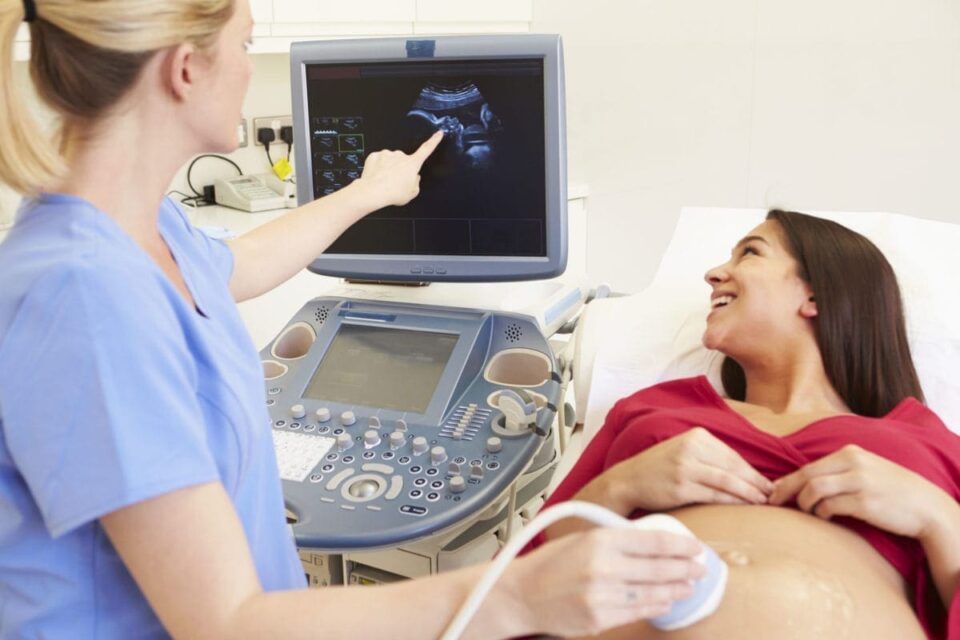Pregnancy is one of the most absolutely fulfilling levels in a woman’s existence, and it is complete with anticipation and critical activities. Much attention is paid to the conservation and reinforcement of women’s and prenatal fitness. In Liverpool, ultrasound services are important in this prenatal experience as they help give expecting parents information to help them through the process. This blog will delve into the wide-ranging aspects of ultrasound services in prenatal care, offering valuable insights for expectant parents in Liverpool.
1. Introduction to Prenatal Ultrasound
Sonography, or ultrasound, uses sound waves to create photographs of the infant enclosed within the womb. It is a regular constituent of prenatal treatment and a highly informative medical tool.
In addition to these functions, sonography also appears to be a source of great happiness for parents, who are happy to see their unborn child during the pregnancy, which helps to strengthen bonding before birth.
2. Confirming and Dating the Pregnancy
The early pregnancy scan is one of the first experiences that pregnant mothers coming to the maternity hospital will encounter when using ultrasound technology. This session lasts 6 to 9 weeks and helps determine the pregnancy, locate a heartbeat, and set up a correct date of birth. This is important in organising future care and making sure that the health milestones are assessed during the pregnancy.
3. Identifying Multiple Pregnancies
Ultrasound scans completed early in pregnancy can reveal the presence of a couple of fetuses, such as twins, triplets, or extra. This vital data is essential, as pregnancies related to multiple toddlers bring a higher risk of headaches.
Knowing about various pregnancies allows healthcare providers to implement more frequent monitoring and potentially different management strategies than a single pregnancy.
This advanced knowledge helps ensure the best possible outcomes for both the mother and her developing babies.
4. Monitoring Fetal Development and Growth
Like any control system, several tests are conducted during pregnancy to determine the baby’s progress. These scans are important for observing how the baby is doing and for identifying any problems that would be of concern.
This may include calculating the baby’s volume, the amount of fluid in the womb, and the pace in the vessels, which provides information about the baby’s general health.
5. Detecting Possible Abnormalities
The anomaly test is finished during the 1/3 trimester of pregnancy, preferably between the 18th and twenty-first week. In particular, this more specific experiment focuses on the baby’s skeleton, heart, head, spinal, face and profile, kidneys, and belly wall muscular tissues.
It is popular in diagnosing genetic disorders that include Down’s syndrome and congenital structural anomalies. It helps the parents and health facility prepare for any additional attention that the baby will require at birth.
6. Assessing the Placenta’s Health and Position
It additionally assesses the location and capability of the placenta, a key organ within a pregnant female’s body. Ultrasound recognises pregnancy complications, including placenta praevia, wherein the placenta lies over the cervix, or placental abruption, which is a partial separation of the placenta from the uterine wall.
Knowledgeable screening for these ailments results in early intervention and efforts by health plans to avoid adverse incidents during childbirth.
7. Determining the Baby’s Position Before Birth
As the expected delivery date approaches, doctors can use an ultrasound in Liverpool to determine the baby’s position within the uterus. This information is essential in planning the delivery strategies since it provides guidelines to follow.
For instance, each time a child is in breech positioning, that is, the toes or buttocks are facing the start canal, then a caesarean is probably advised instead of the normal delivery.
Knowing the infant’s position in advance permits for thorough planning and selection-making regarding the delivery process, ensuring the protection and well-being of both the mom and the child.
8. Supporting Invasive Prenatal Testing
In cases where there is a strong possibility of genetic or chromosomal disorders, ultrasound can be very valuable in directing invasive prenatal diagnosis. Some procedures, such as CVS or amniocentesis, which involve the utilisation of placental cells or amniotic fluid, respectively, give more precise prognoses for some disorders.
Ultrasound helps healthcare providers precisely locate the optimal sampling sites, ensuring the safety and effectiveness of these invasive tests. This advanced imaging technology supports informed decision-making and comprehensive prenatal care for expectant parents.
9. Emotional and Psychological Benefits
In addition to their medical value, ultrasounds give expecting mothers and fathers feelings that are immeasurable on the psychological level. Basic touching objectives include determining the baby’s sex, seeing its image or the heartbeat or just witnessing the baby’s movement, which can greatly facilitate parental attachment, thus providing the parents with confidence in the unborn child.
This can be comforting to parents who may have any kind of uneasiness about pregnancy and give them some confidence.
10. Choosing an Ultrasound Provider in Liverpool
When choosing an ultrasound service in Liverpool, it is important to consider the clinic’s accreditation, the sonographers’ experience, and the available and offered services. Word-of-mouth recommendations from friends and previous patients’ testimonies on social media platforms can also help to provide a good, credible, and sensitive doctor.
Final Thoughts
Thus, ultrasound examinations in prenatal practice are simply essential for both mother’s and baby’s health. They provide information necessary for successfully managing the pregnancy, allay fears, and assist in the initiation of parental-baby relationships. By increasing awareness of these scans and their importance in the process, pregnant citizens in Liverpool can be more confident and happy throughout the pregnancy period.
Information on what to do and expect at any given pregnancy stage can be handy for any expectant parent, helping them unearth a new characteristic and the change that is to come. The ultrasound services provided to support this process should be available to all parents and babies in Liverpool.

